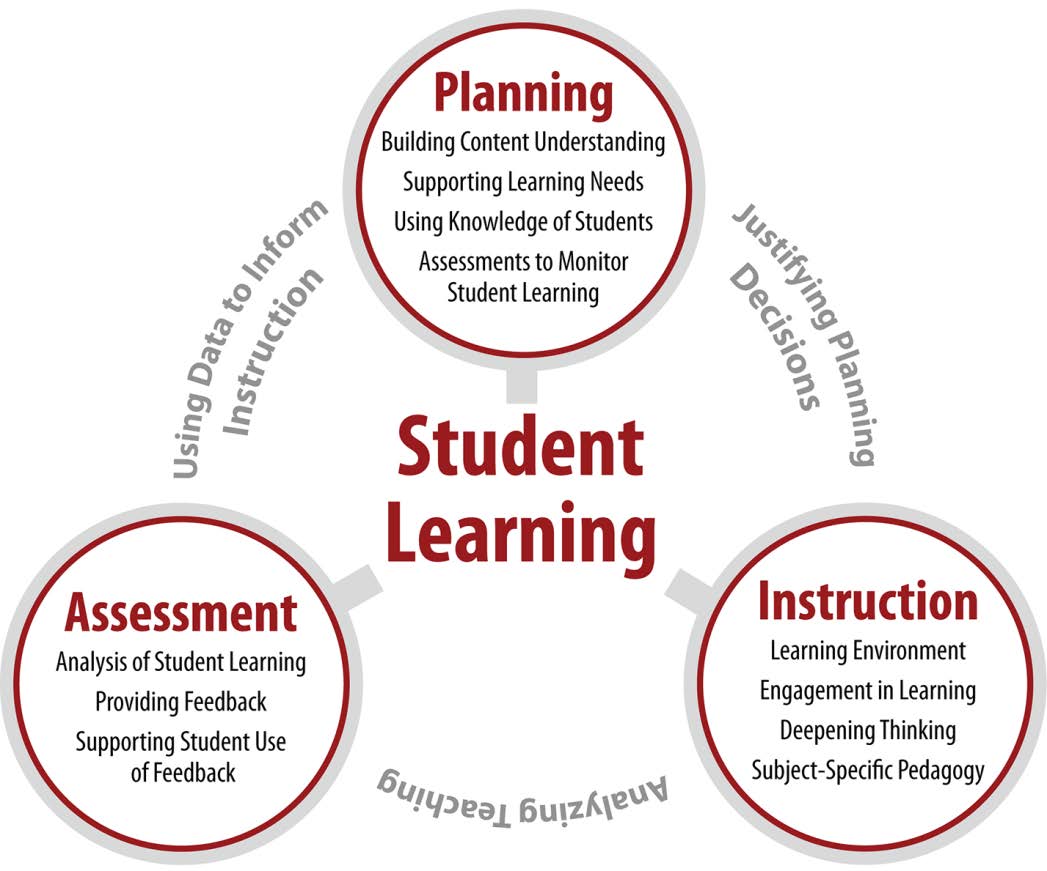What is edTPA?
- A national assessment for aspiring teachers.
- A portfolio that measures planning, instruction, and assessment skills of teacher candidates.
- edTPA engages teacher candidates in developing the knowledge, skills, and abilities they need to meet the needs of today’s diverse learners.

Aspiring teachers must prepare a portfolio of materials during their student teaching clinical experience. edTPA requires aspiring teachers to demonstrate readiness to teach through lesson plans designed to support their students' strengths and needs; engage real students in ambitious learning; analyze whether their students are learning, and adjust their instruction to become more effective. Teacher candidates submit unedited video recordings of themselves at work in a real classroom as part of a portfolio that is scored by highly trained educators. edTPA builds on decades of teacher performance assessment development and research regarding teaching skills and practices that improve student learning.

edTPA General Timeline
You will begin working on your edTPA during your senior year. You will work with your seminar instructor and mentor teacher duinrg Residency I and II to complete this. Below is a general timeline but this can change depending on what program you are in and when you begin Residency.
- Task 1 (Planning): Completed in fall semester of your senior year (Oct.- Dec.)
- Task 2 (Instruction): Completed in spring of your senior year (Jan.- Feb.)
- Task 3 (Assessment): Completed in spring of your senior year (Jan.- March)
- Final submission: Early April of senior year
(This is subject to change based on what program you are in.)
How Can Mentors Help?
The Do's of Supporting a Candidate with the edTPA Process
| Discuss edTPA tasks and scoring rubrics | Use rubric constructs or rubric langugae to evaluate and debrief observations made by cooperating teachers as part of the clinical supervision process |
| Discuss samples of previously completed edTPA portfolio materials (with permissions granted) | Ask probing questions about candidates' draft edTPA responses or video recordings, without directly editing the writing or providing specific answers to edTPA prompts |
| Discuss support documents (such as Making Good Choices) about lessons or examples to use within the assessment | Arrange technical assistance for the video portion of the assessment |
The Don'ts of Supporting a Candidate with the edTPA Process
| Do not edita candidate's official materials prior to submission | Do not instruct candidates on which video clips to select for submission |
| Do not offer critiques of candidate responses that provide specific, alternative responses, prior to submission for official scoring | Do not upload candidate edTPA responses (written reponses or videotape entries) on public access social media websites |
Residency Seminar

- Regular Seminars to help Teacher Candidates break tasks into smaller steps with scaffolds and support from clinical instructors/field supervisors
- edTPA Writing Camps
- edTPA Bootcamp
- edTPA Upload day
Seminar is a class that meets one evening per week during Residency I and Residency II. During seminar, the components of the edTPA will be reviewed, completed, and submitted for grading.
Forms
English Video Permission Letter
Spanish Video Permission Letter
 Stout Drive Road Closure
Stout Drive Road Closure